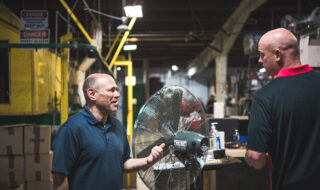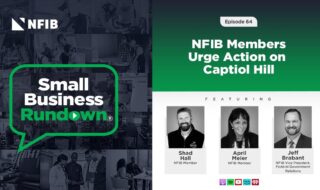June 5, 2024 Last Edit: November 9, 2024
The federal government is warning that La Niña and warmer-than-average ocean temperatures could result in an above-average Atlantic hurricane season.
NOAA predicts 17 to 25 named storms during the 2024 hurricane season, which began on June 1 and runs through November 30. Of these, 8 to 13 storms are predicted to become hurricanes with winds of 74 mph or higher, including 4 to 7 major hurricanes with winds of at least 111 mph.
Most of the damage from a hurricane is likely to occur along the coast, but strong winds and flooding could damage homes and disrupt businesses many miles inland.
While there’s time, review your business’s disaster plan to make sure it’s up to date. If your small business doesn’t have a disaster plan, create one:
- Understand the risks. Is your business in a location where flooding is possible? Are tornadoes, hail storms, earthquakes, or other acts of nature potential hazards to your business? Be sure you are aware and protected as much as possible against the possible risks.
- Be sure you have adequate insurance. You need at least enough to rebuild your home and business. Review your policies to see what is — and isn’t — covered. Consider business interruption insurance, which helps cover operating costs during the post-disaster shutdown period. Get flood insurance.
- Take photographs and videos of your assets. Store them online if possible or in waterproof and fireproof containers kept in a safe place, such as a relative’s or friend’s home or business in another state.
- Have an emergency response plan. Determine your evacuation routes. Establish meeting places. Keep emergency phone numbers handy.
- Develop a communications plan. Designate someone to serve as a contact person for your employees, customers, and vendors. Phone and email in your area may be down following a natural disaster, so ask an out-of-state friend, colleague, or relative to serve as a post-disaster point of contact.
- Back up your business records. Make copies of your vital records and store them in a secure location, ideally in a second location. Back up electronic records to the cloud, and keep paper documents in a fireproof safety deposit box.
- Create a disaster kit. Put a flashlight, a portable radio, fresh batteries, fresh first-aid supplies, non-perishable food, bottled water, a basic tool kit, plastic sheeting, and garbage bags in a bag or box someplace handy, in case of emergency. Encourage your employees to prepare disaster kits for themselves and their families.
- Visit FloridaDisaster.org, which includes state-specific information and resources for Florida employers.
NFIB is a member-driven organization advocating on behalf of small and independent businesses nationwide.
Related Articles














